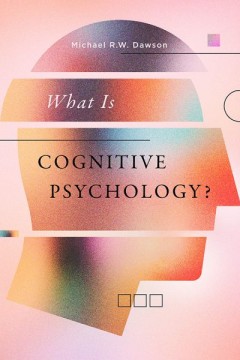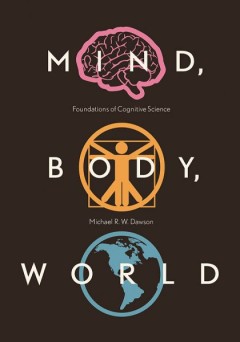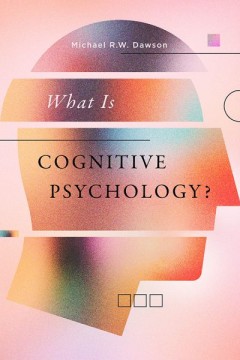Filter by

The Elephant and the Blind: The Experience of Pure Consciousness: Philosophy,…
- Edition
- -
- ISBN/ISSN
- 9780262377287
- Collation
- -
- Series Title
- -
- Call Number
- -
- Edition
- -
- ISBN/ISSN
- 9780262377287
- Collation
- -
- Series Title
- -
- Call Number
- -

Psychoacoustic Foundations of Major-Minor Tonality
- Edition
- -
- ISBN/ISSN
- 9780262377362
- Collation
- -
- Series Title
- -
- Call Number
- -
- Edition
- -
- ISBN/ISSN
- 9780262377362
- Collation
- -
- Series Title
- -
- Call Number
- -

The Blind Spot: Why Science Cannot Ignore Human Experience
- Edition
- -
- ISBN/ISSN
- 9780262377744
- Collation
- -
- Series Title
- -
- Call Number
- -
- Edition
- -
- ISBN/ISSN
- 9780262377744
- Collation
- -
- Series Title
- -
- Call Number
- -

The Secret Life of Literature
An innovative account that brings together cognitive science, ethnography, and literary history to examine patterns of “mindreading” in a wide range of literary works. For over four thousand years, writers have been experimenting with what cognitive scientists call “mindreading”: constantly devising new social contexts for making their audiences imagine complex mental states of chara…
- Edition
- Ed. 1
- ISBN/ISSN
- 9780262367653
- Collation
- -
- Series Title
- -
- Call Number
- 305.8 ZUN s

Connectionist Representations of Tonal Music Discovering Musical Patterns by…
Intended to introduce readers to the use of artificial neural networks in the study of music, this volume contains numerous case studies and research findings that address problems related to identifying scales, keys, classifying musical chords, and learning jazz chord progressions. A detailed analysis of the internal structure of trained networks could yield important contributions to the fiel…
- Edition
- -
- ISBN/ISSN
- 9781771992206.01
- Collation
- -
- Series Title
- -
- Call Number
- 6 x 9, 312 pages

What Is Cognitive Psychology?
What Is Cognitive Psychology? identifies the theoretical foundations of cognitive psychology—foundations which have received very little attention in modern textbooks. Beginning with the basics of information processing, Michael R. W. Dawson explores what experimental psychologists infer about these processes and considers what scientific explanations are required when we assume cognition is …
- Edition
- -
- ISBN/ISSN
- 9781771993418.01
- Collation
- -
- Series Title
- -
- Call Number
- 6x9, 200 pages

Mind, Body, World Foundations of Cognitive Science
Examples, cases, and research findings taken from the wide range of phenomena studied by cognitive scientists effectively explain and explore the relationship among the three perspectives. Intended to introduce both graduate and senior undergraduate students to the foundations of cognitive science, Mind, Body, World addresses a number of questions currently being asked by those practicing in th…
- Edition
- -
- ISBN/ISSN
- 9781927356173.01
- Collation
- -
- Series Title
- -
- Call Number
- 506 pages

From Bricks to Brains The Embodied Cognitive Science of LEGO Robots
From Bricks to Brains introduces embodied cognitive science, and illustrates its foundational ideas through the construction and observation of LEGO Mindstorms robots. Discussing the characteristics that distinguish embodied cognitive science from classical cognitive science, From Bricks to Brains places a renewed emphasis on sensing and acting, the importance of embodiment, the exploration of …
- Edition
- -
- ISBN/ISSN
- 9781897425787.01
- Collation
- -
- Series Title
- -
- Call Number
- 354 pages

Connectionist Representations of Tonal Music Discovering Musical Patterns by…
Intended to introduce readers to the use of artificial neural networks in the study of music, this volume contains numerous case studies and research findings that address problems related to identifying scales, keys, classifying musical chords, and learning jazz chord progressions. A detailed analysis of the internal structure of trained networks could yield important contributions to the fiel…
- Edition
- -
- ISBN/ISSN
- 9781771992206.01
- Collation
- -
- Series Title
- -
- Call Number
- 6 x 9, 312 pages

What Is Cognitive Psychology?
What Is Cognitive Psychology? identifies the theoretical foundations of cognitive psychology—foundations which have received very little attention in modern textbooks. Beginning with the basics of information processing, Michael R. W. Dawson explores what experimental psychologists infer about these processes and considers what scientific explanations are required when we assume cognition is …
- Edition
- -
- ISBN/ISSN
- 9781771993418.01
- Collation
- -
- Series Title
- -
- Call Number
- 6x9, 200 pages
 Computer Science, Information & General Works
Computer Science, Information & General Works  Philosophy & Psychology
Philosophy & Psychology  Religion
Religion  Social Sciences
Social Sciences  Language
Language  Pure Science
Pure Science  Applied Sciences
Applied Sciences  Art & Recreation
Art & Recreation  Literature
Literature  History & Geography
History & Geography